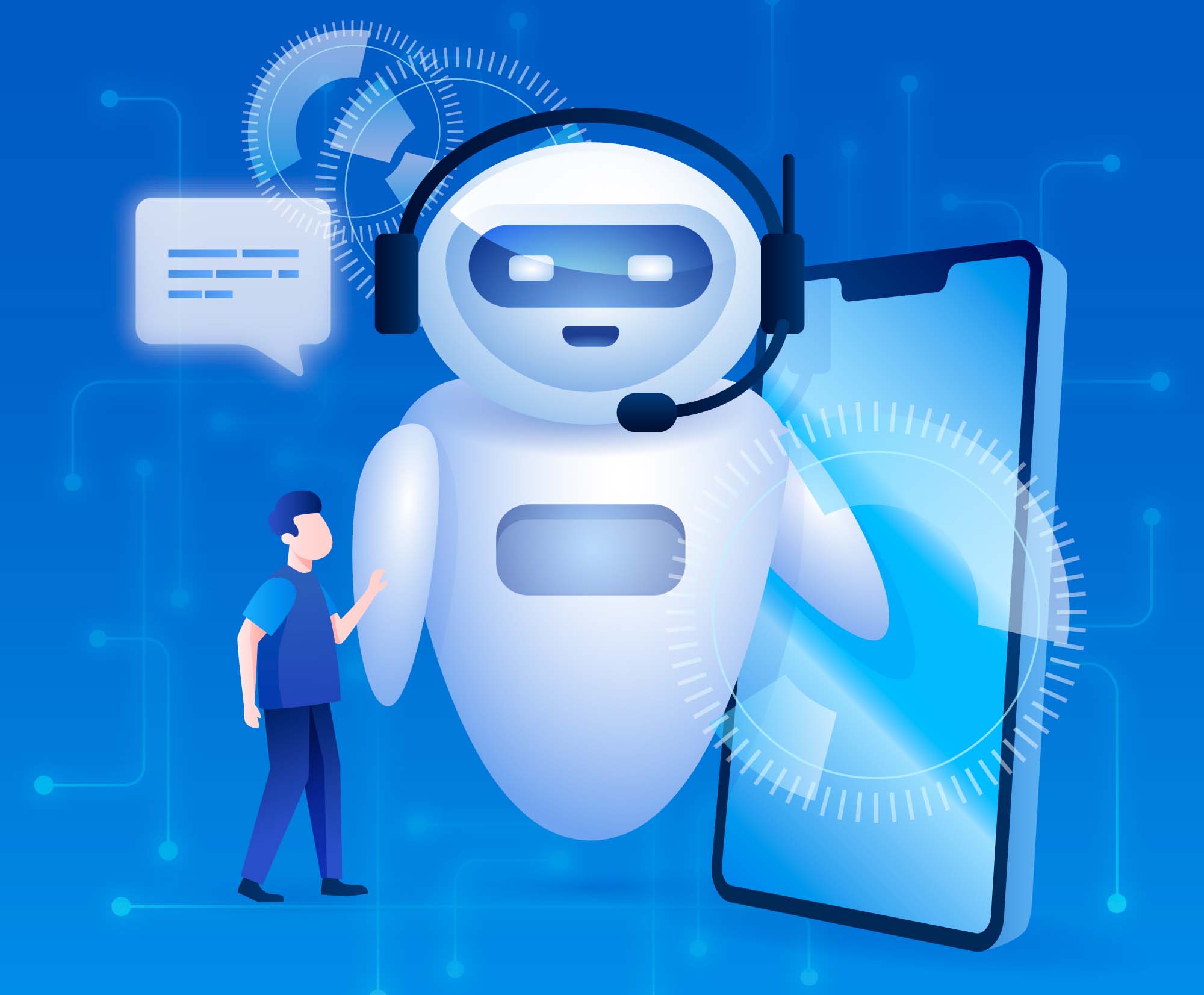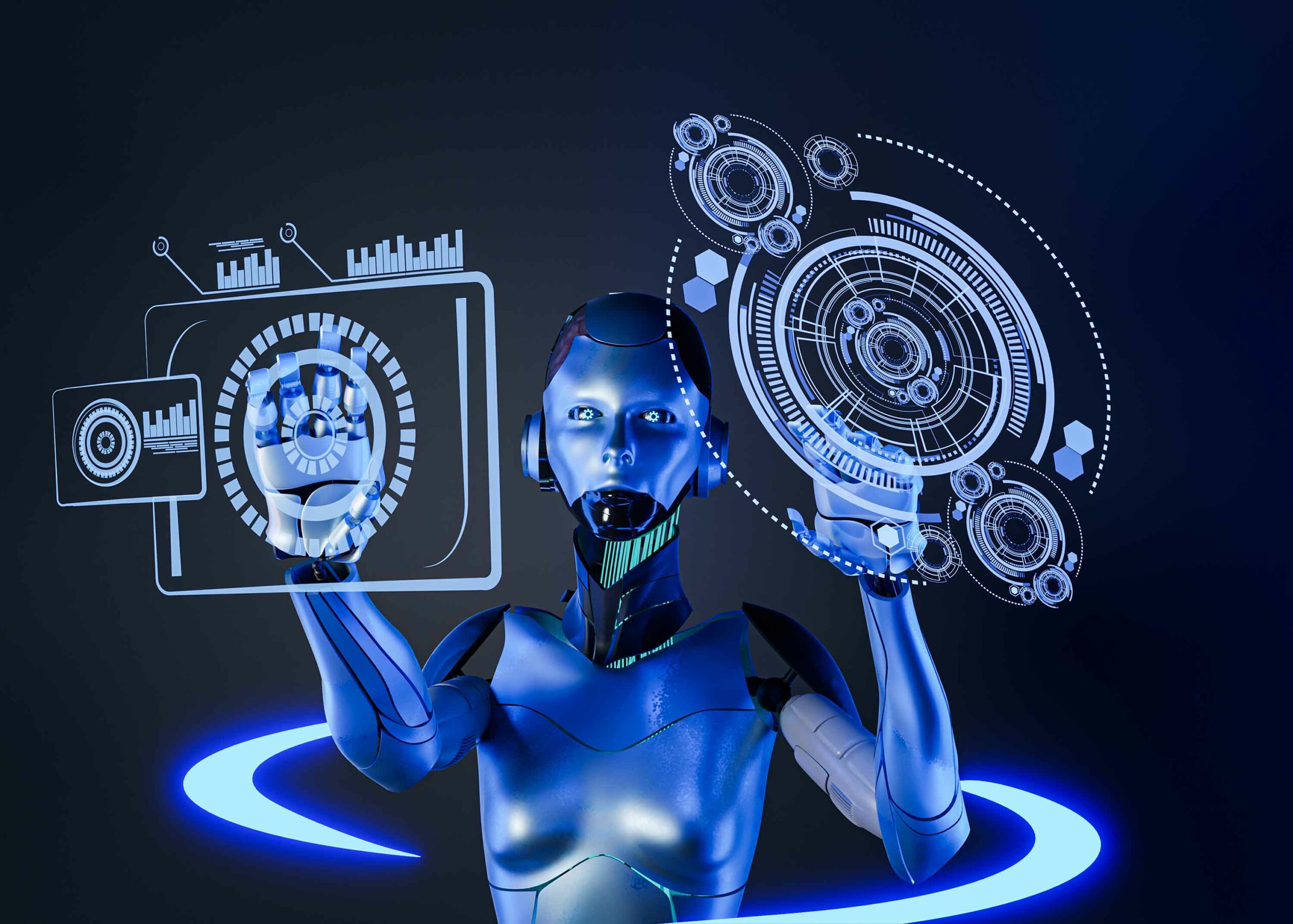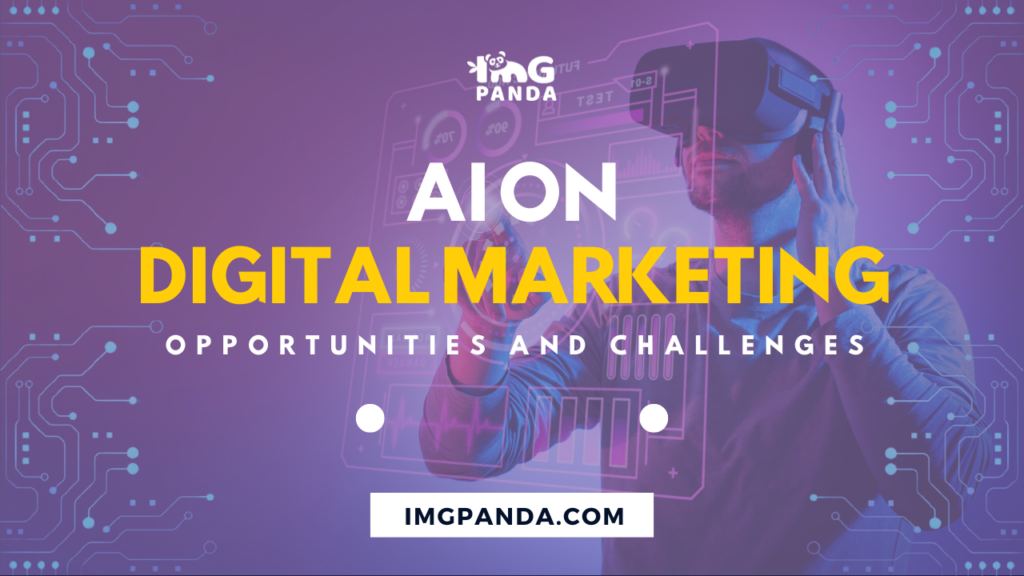Introduction
Artificial intelligence (AI) is rapidly transforming various industries, and digital marketing is no exception. AI technologies are revolutionizing how digital marketing campaigns are created, managed, and optimized. As a result, marketers need to stay informed on the impact of AI on digital marketing to keep pace with changing trends and take advantage of the opportunities they present.
In this article, we will explore the opportunities and challenges of AI in digital marketing, examine examples of AI in action, and discuss the future of AI in this field.
Also Read This: How to Split an Image into 9 for Instagram?
Opportunities of AI in Digital Marketing
Artificial intelligence presents numerous opportunities for digital marketers to improve their campaigns and enhance the customer experience. Here are some of the key opportunities of AI in digital marketing:
Personalization of marketing strategies:
AI enables marketers to analyze vast amounts of data and create personalized marketing strategies that resonate with individual customers. This personalization can lead to increased engagement, loyalty, and conversions.
Improved customer targeting and segmentation:
AI-powered tools can help marketers segment their audiences and target them with more relevant content and offers. This can result in more effective campaigns and higher conversion rates.
Optimization of content creation and curation:
AI tools can analyze content performance data and suggest content topics, formats, and distribution channels. This can help marketers create and curate more engaging and effective content.
Enhanced customer service and communication:
AI-powered chatbots and voice assistants can provide instant customer service and support, improving the customer experience and reducing response times.
Overall, AI offers digital marketers new ways to understand, engage with, and convert customers, leading to improved business outcomes.
[caption id="attachment_182672" align="alignnone" width="2560"] Opportunities of AI in Digital Marketing[/caption]
Opportunities of AI in Digital Marketing[/caption]
Also Read This: 10 Tips for Picking Imago Stock Photos
Challenges of AI in Digital Marketing
While there are many benefits to incorporating AI into digital marketing strategies, there are also challenges that must be addressed. Here are some of the key challenges of AI in digital marketing:
Privacy concerns and ethical considerations:
As AI-powered tools collect and analyze large amounts of data, there are concerns around privacy and the ethical use of that data. Marketers must ensure they are transparent about how data is being collected and used, and comply with relevant privacy regulations.
Dependence on algorithms and data quality:
The effectiveness of AI tools is highly dependent on the quality of data they are fed. Poor data quality can lead to inaccurate insights and ineffective marketing campaigns.
Limited understanding and expertise in AI:
Many marketers lack a deep understanding of AI and how to effectively incorporate it into their campaigns. This can lead to suboptimal use of AI tools and missed opportunities.
Potential job displacement:
As AI becomes more prevalent in digital marketing, there is a concern that certain tasks and roles may become automated, leading to job displacement for some marketers.
Overall, marketers need to be aware of the challenges of incorporating AI into their digital marketing strategies and work to address these issues to ensure they are using AI in an ethical and effective manner.
[caption id="attachment_182673" align="alignnone" width="2560"] Challenges of AI in Digital Marketing[/caption]
Challenges of AI in Digital Marketing[/caption]
Also Read This: How to Create Custom Ringtones from YouTube
Examples of AI in Digital Marketing
There are numerous examples of AI being used in digital marketing. Here are some of the most common and effective uses of AI in this field:
Chatbots and conversational marketing:
AI-powered chatbots can provide instant customer service and support, improving the customer experience and reducing response times. These chatbots can also assist with lead generation and nurturing, providing personalized recommendations and offers.
Predictive analytics and machine learning:
AI-powered predictive analytics can help marketers anticipate customer behavior, identify trends, and optimize their campaigns accordingly. Machine learning algorithms can also be used to continually refine and improve marketing strategies.
Personalized recommendations and product offerings:
AI-powered tools can analyze customer data and behavior to provide personalized recommendations and product offerings. This can improve the customer experience and drive conversions.
Visual and voice search optimization:
AI-powered visual and voice search tools can help marketers optimize their content and product offerings for these emerging search channels, improving visibility and engagement.
Overall, AI is being used in many different ways in digital marketing to improve the customer experience, optimize campaigns, and drive business outcomes.
[caption id="attachment_182674" align="alignnone" width="2000"] Chatbots and conversational marketing[/caption]
Chatbots and conversational marketing[/caption]
Also Read This: Do I Get ESPN Plus with YouTube TV and What Sports Channels Are Included
Future of AI in Digital Marketing
The future of AI in digital marketing is bright, with continued growth and innovation expected in this field. Here are some of the key trends and developments to watch for:
Increased use of AI-powered voice assistants:
As voice search and assistants become more prevalent, marketers will need to optimize their content and campaigns for these channels using AI-powered tools.
Continued growth in personalization and customer targeting:
AI will continue to enable marketers to create personalized marketing strategies that resonate with individual customers, improving engagement and conversions.
Greater use of AI in content creation and curation:
AI-powered tools will continue to be used to create and curate more engaging and effective content, based on data and insights.
More sophisticated predictive analytics and machine learning:
As AI technologies become more advanced, predictive analytics and machine learning algorithms will become even more sophisticated, enabling marketers to anticipate customer behavior and optimize campaigns accordingly.
Overall, the future of AI in digital marketing is one of continued growth and innovation, with new and exciting opportunities for marketers to engage with customers and drive business outcomes. However, marketers must also address the challenges of AI, such as privacy concerns and data quality issues, to ensure they are using these tools in an ethical and effective manner.
[caption id="attachment_182675" align="alignnone" width="2560"] Future of AI in Digital Marketing[/caption]
Future of AI in Digital Marketing[/caption]
Also Read This: How to Make Rasgulla at Home in Urdu Simple Recipe
Pros & Cons
| Pros of AI in Digital Marketing | Cons of AI in Digital Marketing |
|---|---|
| Enables personalized marketing strategies that resonate with individual customers | Privacy concerns and ethical considerations around data collection and use |
| Improves customer experience and engagement through chatbots and conversational marketing | Dependence on algorithms and data quality for effective insights and campaigns |
| Provides predictive analytics and machine learning to optimize campaigns | Limited understanding and expertise in AI among marketers |
| Improves search optimization for emerging channels like voice and visual search | Potential job displacement for marketers as certain tasks become automated |
| Creates and curates more effective content based on data and insights | Risk of overreliance on AI and loss of creativity in marketing |
Also Read This: Pikbest: Where Free Design Tools Meet Unlimited Possibilities
Conclusion
In conclusion, AI is transforming the digital marketing landscape, providing new and innovative ways to engage with customers and drive business outcomes. From personalized marketing strategies to chatbots and conversational marketing, AI is helping marketers improve the customer experience and optimize campaigns based on predictive analytics and machine learning.
However, there are also challenges to consider, including privacy concerns, data quality issues, and the potential for job displacement. To make the most of AI in digital marketing, marketers must stay informed and educated on developments in this field, while also addressing the ethical and practical considerations of these tools. With a balanced approach, AI can be a powerful tool for driving business success in the digital age.
FAQs
What is AI in digital marketing?
AI in digital marketing refers to the use of artificial intelligence technologies to improve marketing strategies, campaigns, and customer experiences. This includes using tools such as chatbots, predictive analytics, and machine learning algorithms to personalize marketing efforts and optimize campaigns based on data and insights.
What are some examples of AI in digital marketing?
Some examples of AI in digital marketing include chatbots for customer support and lead generation, predictive analytics and machine learning algorithms to optimize campaigns, personalized recommendations and product offerings based on customer data, and AI-powered visual and voice search optimization.
What are the benefits of using AI in digital marketing?
The benefits of using AI in digital marketing include improved customer experience and engagement, personalized marketing strategies, more effective content creation and curation, and the ability to optimize campaigns based on predictive analytics and machine learning.
What are the challenges of using AI in digital marketing?
Challenges of using AI in digital marketing include privacy concerns and ethical considerations around data collection and use, dependence on algorithms and data quality for effective insights and campaigns, limited understanding and expertise in AI among marketers, potential job displacement for marketers as certain tasks become automated, and the risk of overreliance on AI and loss of creativity in marketing.
What is the future of AI in digital marketing?
The future of AI in digital marketing is expected to see continued growth and innovation, with increased use of AI-powered voice assistants, more sophisticated predictive analytics and machine learning algorithms, and greater use of AI in content creation and curation. However, marketers must also address the challenges of AI, such as privacy concerns and data quality issues, to ensure they are using these tools in an ethical and effective manner.
